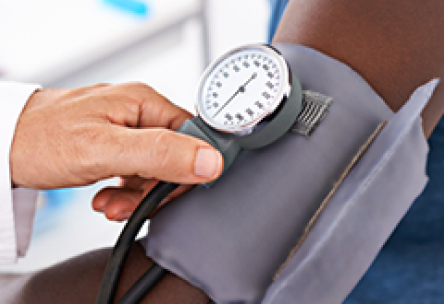See your doctor and get the tests you need, even if you’re feeling fine

People put off going to the doctor for lots of reasons, including time. “They end up thinking they’ll do it next year because they feel fine right now,” says Russell Breish, M.D., a physician at Chestnut Hill Family Practice in Philadelphia.
Fear can also stop people from getting screenings, whether it’s fear of the results or fear of the test itself, Dr. Teel says. “We hope we don’t see something,” he says. “But if we do, we’ll see it at an early stage versus seeing a much bigger problem later on.”
And then there’s concern about money. “People have worries about what a test is going to cost,” Dr. Breish says. However, an undetected illness can lead to even more expensive treatment later. You can go to ibxpress.com or call 1-844-BLUE-4ME if you have questions about your coverage.
Get the Tests You Need
Protecting your health doesn’t have to be time-consuming, troubling, or too costly. It only takes a few key screenings to stay on top of your health. Discuss these screenings with your doctor:
Blood pressure: Have it checked every year. High blood pressure is “a perfect example of a disease that may have no symptoms for many years,” Dr. Teel says. If not treated, high blood pressure can damage your heart and other organs.
Cholesterol: By age 35, men should have their cholesterol checked. Women who are 45 years or older at high risk for heart disease should also have theirs checked. Healthy cholesterol levels can help prevent heart attack and stroke.
Breast cancer: At age 40, women should consider getting mammograms to screen for breast cancer. If you have a family history of breast cancer, your doctor might recommend mammograms or other breast cancer screenings sooner.
Colorectal and prostate cancer: At age 50, both men and women should start getting screenings for colorectal cancer. This type of cancer can often be treated if found early. Also at this age, men should ask their doctor about prostate cancer screenings.
Tell Your Doctor
“Don’t feel something is too small to bring up,” Dr. Teel says. “Small things may give us insight into something else.” Tell your doctor about any changes to your health. Your emotional well-being is also important, which is why your physician might ask how you’re feeling or about social habits like drinking.
See your doctor at least once a year to make sure you’re doing everything you can to stay well. “Encouragement from your doctor that you’re doing the right things is good to hear,” Dr. Teel says.